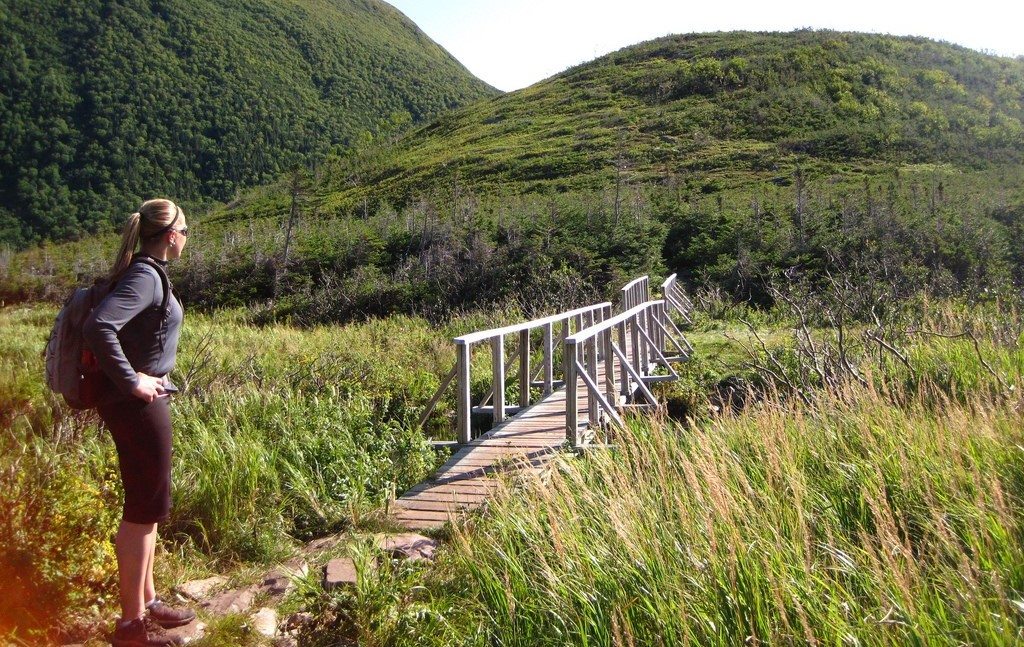
8 Lesser Known Health Benefits of the Backcountry
Besides being totally awesome, adventurous, and down-right fun, hiking in the backcountry is actually very healthy and has actually been proven to make you live longer. Hiking will not only make you into a more active person, but will actually contribute to positive changes in your health long-term. We all know that backpacking is good for us in one way or the other, but here are the benefits of being in the backcountry that you may have not known before:
The Fresh Air
The fresh, clean air of the backcountry can be life-saving for people who have debilitating lung conditions, such as asthma, sarcoidosis, pneumonia, or cancer. In the past, doctors believed that symptoms of such conditions like tuberculosis could be calmed by sending those infected away to where they could get clean air and away from germs that could make them even more sick. It was so common that Colorado’s rise in population in the early 1900’s can be contributed to the influx of TB patients. The great outdoors can provide sufferers with a climate and environment that can help them breathe easier.
Lower Risk of Other Serious Health Complications
By hiking for long periods of time, you are doing a form of aerobic exercise that allows all kinds of beautiful things to happen to your body. So, what kinds of risks does backpacking actually help prevent? Well, the first thing is coronary heart disease or stroke (see #3). Second, it can lower the risk of high blood pressure, type 2 diabetes, high cholesterol, breast cancer, colon cancer, and of course lower the risk of obesity; especially in children. Whether you are young or old, hiking will certainly help prevent or manage these health conditions a better way.
The Altitude
Believe it or not, there are actually some benefits to being higher up. Though it’s not for everybody, people who are accustomed to physical activity and the outdoors can actually use altitude to make their bodies able to handle more. Many athletes will train in higher altitudes because the low oxygen helps produce more red blood cells to compensate. This comes in handy when athletes compete at sea level. Others have found that hiking in high altitude means lower obesity rates as well as a lower risk for heart disease and stroke. However, the disadvantages of being at high altitudes often outweigh the advantages, so just be aware of what your health goals are before hiking that mountain.

Lower Risk of Depression
While the onset of depression can sometimes be unpredictable, getting outdoors can definitely help prevent the risk of getting it. By exerting yourself through exercise in the outdoors, it helps lower stress levels and lets you sleep better night; two things that definitely play a role in the disease. Making a routine of getting outside and walking gets the blood pumping, making you feel pretty good. Of course, the outdoors also provides tons of positive distractions, whether it be the scenery, the wildlife, or the sun warming up your bones; all things that can lower the risk of depression.
Bone and Muscle Strength
All the exercise from hiking, especially while wearing a heavy backpack, can help strengthen the body in so many ways. First of all, hiking on uneven terrains or powering up a steep mountain side will certainly help make your muscles stronger and more defined. If you’re holding a backpack and wearing the right shoes, your back muscles and posture can certainly improve, especially if they weren’t so strong before. Additionally, hiking helps increase bone density, meaning healthier bones long term.
Clearer, More Radiant Skin
Of course when we hike, we need to protect our skin by wearing plenty of sunscreen, especially in high altitudes where the UV rays are stronger. That being said, as long as you take all the proper precautions, then the vitamin D from the sun is going to make your skin glow. Additionally, because we typically drink a lot more fluids during our hikes outdoors, water is the best medicine to clear your skin of blemishes. Also, sweating is actually like therapy for your face, as a little sweat opens up the pores to release dirt and oil. In general, hiking is just a gold-mine if you want your skin to be clean and healthy.
A Healthier Brain
Besides the obvious physical gains, backpacking is also great for your mind. Testing your nature skills, as well as being stimulated by all that’s around you certainly helps improve brain function throughout life. It’s good for your imagination and your overall well-being. For kids, it’s a great way to learn something new and actually help them focus more in school.
Better Relationships
Hiking with a friend, family member, or partner, can be seriously healthy for your relationship. By exploring the outdoors together, it allows time to disconnect from everything else and connect with one another. Together you can take in the gorgeous scenery, work together to make a campfire, or enjoy long talks while you make your way up to the summit.













